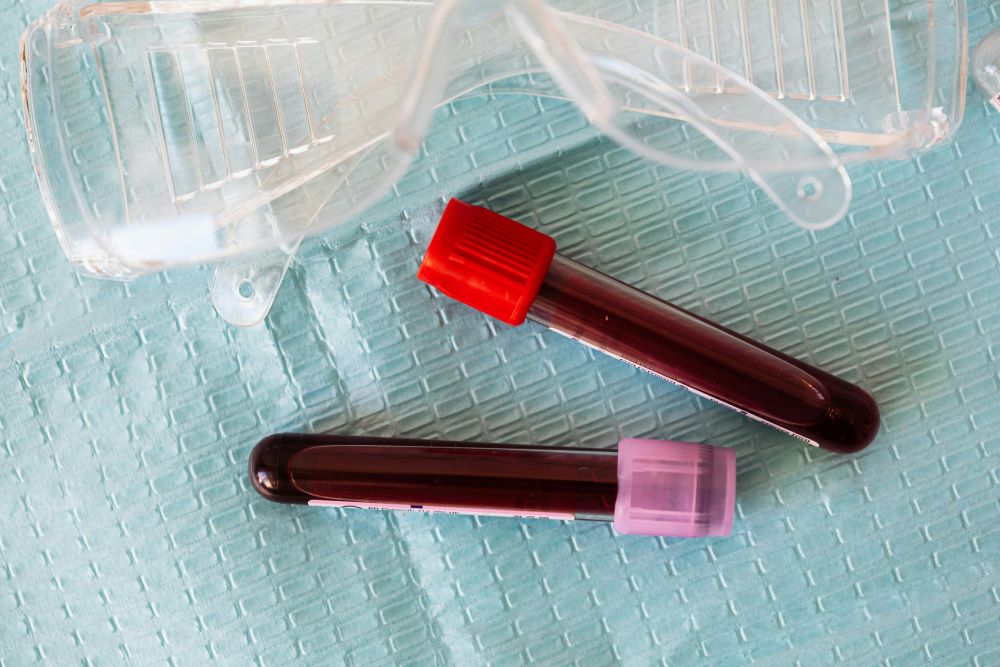With promising results in a clinical trial, new drug rusfertide may effectively treat polycythemia vera.
In a potential breakthrough against the rare blood cancer, polycythemia vera, a newly developed drug called rusfertide. This drug has actively shown a very positive results in a recent clinical trial. Dr. Marina Kremyanskaya led the study, being a hematology and medical oncology expert. She emphasized the unique approach of rusfertide in limiting the availability of iron for blood cell production.
The clinical trial, funded by Protagonist Therapeutics and published in the New England Journal of Medicine on Feb 21, involved 70 polycythemia vera patients across 16 medical centers. Notably, rusfertide showed promise in providing improved and sustained control over excess red blood cell production during the seven-month treatment period.
This is a relatively rate type of cancer that characterizes itself as a chronic blood disorder. In this disease, there is a rapid overproduction of red blood cells within the bone marrow. This condition falls under the umbrella term of myeloproliferative neoplasms. This is a group of disorders where the bone marrow produces too many blood cells. PV specifically involves the overproduction of red blood cells, although it can also affect white blood cells and platelets.
Individuals with polycythemia vera typically have an elevated red blood cell count, which can lead to a thickening of the blood, making it more prone to clotting. This increased viscosity can result in serious health complications, including blood clots, strokes, and heart attacks. Additionally, the excessive red blood cells can impair circulation and oxygen delivery to tissues and organs, leading to symptoms such as fatigue, headaches, dizziness, and itching, especially after exposure to warm water.

PV is considered a rare condition, affecting approximately one to three individuals per 100,000 in the general population. While it can occur at any age, polycythemia vera is more commonly diagnosed in adults, with the median age at diagnosis being around 60 years old. However, it can also affect younger individuals, although less frequently.
The exact cause of polycythemia vera is not fully understood. However, the source is expected to be genetics. There may be mutations in the bone marrow cells, particularly mutations in the JAK2 gene. These mutations result in the uncontrolled growth and proliferation of blood cells. While some cases of PV may be sporadic, meaning they occur without a known cause, others may have a familial component, suggesting a genetic predisposition to the disease.
Diagnosing polycythemia vera typically involves a combination of physical examinations, blood tests, and bone marrow biopsies. Blood tests may reveal elevated red blood cell counts, increased hemoglobin and hematocrit levels, and the presence of genetic mutations, particularly the JAK2 mutation.
Treatment for polycythemia vera aims to reduce the risk of clots in this rare blood cancer, alleviate symptoms, and prevent complications. Common treatment approaches include:
- Phlebotomy: This procedure involves the removal of blood from the body to reduce blood volume and lower red blood cell counts.
- Medications: Patients may be prescribed medications such as hydroxyurea, interferon-alpha, or ruxolitinib to suppress the bone marrow’s production of blood cells and reduce the risk of blood clots.
- Aspirin therapy: Low-dose aspirin may be recommended to prevent blood clot formation in individuals with PV.
- Supportive care: Patients may receive supportive treatments to manage symptoms such as itching, fatigue, and enlarged spleen.
While treatments for polycythemia vera can help manage the condition and reduce the risk of complications, the disease is chronic and requires ongoing monitoring and management by healthcare professionals. In some cases, PV may progress to a more advanced stage or transform into other myeloproliferative disorders, necessitating adjustments to treatment plans.
Research into new therapies and treatment approaches, such as the experimental drug rusfertide mentioned in the article, offers hope for improved outcomes and quality of life for individuals living with polycythemia vera. Ongoing efforts to better understand the underlying mechanisms of the disease and develop targeted therapies hold promise for advancing the field of MPN treatment and management.
Polycythemia vera is a rare condition, affecting approximately one to three individuals per 100,000. Current treatment options include aspirin therapy to prevent blood clots, medications like hydroxyurea, interferon, and ruxolitinib to reduce red blood cell counts, and phlebotomy procedures to withdraw blood and lower overall blood volume.
However, these treatments can be mentally and physically taxing for patients and may not always effectively control red blood cell levels.
Rusfertide operates by mimicking a liver hormone that regulates iron levels in the blood. Lowering iron levels, the drug manages the overproduction of red blood cells, offering a potentially more effective and tolerable treatment option. Importantly, patients in the trial were able to self-administer rusfertide injections at home.
The drug showed positive outcomes, reducing the need for repeated phlebotomies, with some patients remaining virtually free of the procedure for over two and a half years.
Dr. Kremyanskaya expressed optimism about the potential of rusfertide, citing its great promise in addressing the disease and improving patients’ quality of life. A phase 3 clinical trial is now planned to further evaluate the drug’s effectiveness and safety, bringing hope for enhanced treatment options for individuals battling this rare blood cancer.
Sources:
New Drug Could Be Big Advance Against Rare Blood Cancer
Polycythemia vera: historical oversights, diagnostic details, and therapeutic views
Polycythemia vera: 2024 update on diagnosis, risk-stratification, and management


Join the conversation!